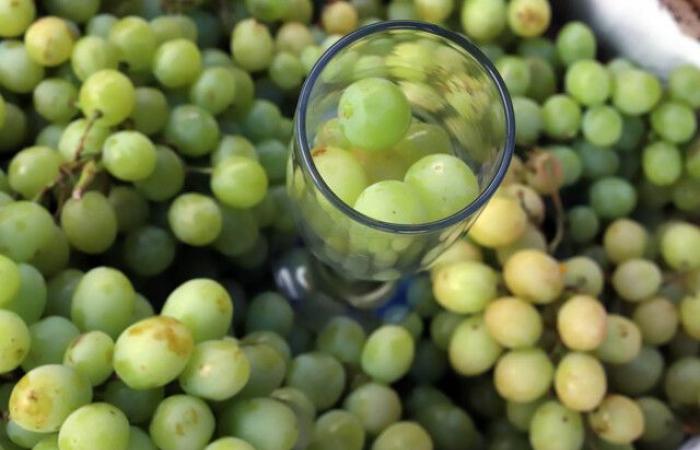The Government of President Gabriel Boric reported that, after 24 years of work and negotiation between Chile and the United States, the launch of the Systems Approach for Chilean table grapes.
“This protocol replaces methyl bromide fumigation with a series of mitigation measures at source, improving the quality and condition of the fruit in the destination market, allowing us to achieve a competitive position in the face of growing competition from other countries in the southern hemisphere that send this fruit to the US market,” the Executive explained.
The Minister of Agriculture, Esteban Valenzuela (FRVS), valued the approval due to the importance of this species in the fruit sector and stated that it will benefit the table grapes of the regions of Atacama, Coquimbo and part of Valparaíso, which are large producers and exporters of table grapes destined for the US.
“This is very relevant. After cherries, table grapes are the country’s main fruit export with more than US$1 billion and where almost half go to the United States and entering the United States without methyl bromide, without fumigation, according to different projections, will to increase the value between 40 to 45%, which is very significant at a time when the economy is reactivated and we need to recover jobs from the central north regions,” said the Secretary of State during a ceremony held in Copiapó in the Senator Yasna Provoste (DC) and Senator Rafael Prohens (RN) also participated.
The United States ambassador to Chile, Bernadette Meehan, welcomed the measure and highlighted that her country is the main market for Chilean table grapes, adding that “this protocol benefits not only workers, but also the economy and the people of the Atacama region, as well as the regions of Coquimbo and Valparaíso.”
Friendly processes
The Undersecretary of International Economic Relations, Claudia Sanhueza, added that the implementation of the Systems Approach for table grapes reinforces ties with the United States, which have already celebrated 201 years of diplomatic relations and 20 years since the entry into force of the Agreement. of Free Trade.
“We are certain that this is an opportunity for producers in the Atacama, Coquimbo and Valparaíso regions to boost their competitiveness in the U.S. market and increase the quality of their products, improving their entry conditions and value to compete in markets that increasingly demand greater sustainability and adaptation to climate change,” said Undersecretary Sanhueza.
The Foreign Ministry official also stressed that “ultimately, it is an opportunity to promote our exporters’ participation in the global market with excellent products that are the result of environmentally friendly processes, a challenge that both governments consider a priority.”
From Frutas de Chile, its president Iván Marambio, described the approval of the Systems Approach as the most important historical event for table grapes. “Chile is a grape growing country, our traditional fruit is grapes and this means improving our competitiveness, approaching the consumer in a different way than we had been doing since the United States is our main market and with this we have the possibility of reaching 60% of the grapes that Chile exports to the world do not have fumigation, which is extraordinary and brings us closer to other origins in terms of competitiveness and way of reaching the American consumer,” he indicated.
For the president of Fedefruta, Víctor Catán, “this is very beneficial for table grape producers, for those who work in the production of table grapes, because it levels the playing field that has been uneven for many years and that did not allow us to compete equally with other suppliers. In addition, it allows us to bring better quality fruit to the American market, to consumers, who are our great allies in the fruit sector.”
For his part, the governor of Atacama, Miguel Vargas, said that “there has been a significant effort to control pests in the region for a long time and producers, SAG, Minagri and the United States embassy have been committed to this (…) having the possibility of obtaining better prices for grapes will result in benefits for the economy, which means economic growth in Atacama, more jobs and to the extent that we improve competitiveness, not only farmers will benefit, but the region as a whole.”
Finally, Minister Esteban Valenzuela said “that we have the task of continuing to work with the industry and with the United States and also other markets, so that the Metropolitan region, O’Higgins and Maule, which have important hectares of table fruits, can also join this very good news.”


